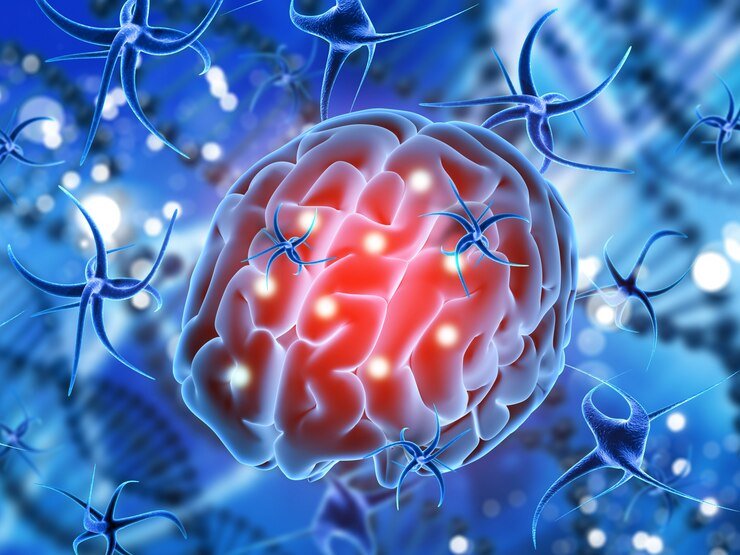Neurotherapy For Peak Performance: Enhancing Cognitive Function And Focus
In the pursuit of excellence, individuals across various domains, from athletes to business professionals, seek ways to optimize their cognitive abilities and focus. Neurotherapy, a rapidly evolving field at the intersection of neuroscience and psychology, offers promising strategies to unlock peak performance by harnessing the brain’s potential. In this article, we explore the principles, techniques, and applications of Neurotherapy for enhancing cognitive function and focus, empowering individuals to reach new heights in their endeavors.
Understanding Neurotherapy for Peak Performance
Neurotherapy, also known as neurofeedback or biofeedback, is a non-invasive therapeutic approach that utilizes real-time feedback of brain activity to promote self-regulation and optimize brain function. By monitoring and analyzing neural activity, Neurotherapy practitioners can identify patterns associated with specific cognitive states and train individuals to modulate these patterns for improved performance.
Enhancing Cognitive Function
Neurotherapy offers several strategies for enhancing cognitive function, including memory, attention, processing speed, and executive function. Neurofeedback protocols target specific brain regions and networks involved in cognitive processes, such as the prefrontal cortex, hippocampus, and default mode network. Through targeted training sessions, individuals learn to optimize brainwave patterns associated with enhanced cognitive performance, resulting in improvements in memory recall, information processing, and decision-making abilities.
Boosting Focus and Concentration
One of the primary goals of Neurotherapy for peak performance is to enhance focus and concentration. By training individuals to modulate their brainwave patterns, particularly in regions associated with attentional control, neurofeedback can help individuals achieve a state of heightened focus and sustained attention. This is particularly beneficial in high-pressure situations, such as athletic competitions or academic exams, where maintaining concentration is essential for optimal performance.
Neurotherapy Techniques for Peak Performance
Several Neurotherapy techniques and modalities are used to enhance cognitive function and focus:
Neurofeedback Training: Neurofeedback involves real-time monitoring of brainwave activity, typically using electroencephalography (EEG), and providing feedback to individuals in the form of visual or auditory cues. By rewarding desirable brainwave patterns associated with peak performance states, such as alpha and theta coherence, individuals learn to self-regulate their brain activity and optimize cognitive function.
Biofeedback: Biofeedback techniques extend beyond brainwave activity to include physiological measures such as heart rate variability (HRV), skin conductance, and muscle tension. By providing feedback on these physiological parameters, individuals can learn to modulate their autonomic nervous system activity and achieve a state of physiological coherence conducive to peak performance.
Cognitive Training Programs: In addition to neurofeedback, cognitive training programs incorporating exercises and tasks designed to challenge and enhance cognitive abilities are integral to Neurotherapy for peak performance. These programs may include working memory exercises, attention training tasks, and cognitive flexibility drills aimed at improving specific cognitive domains.
Applications of Neurotherapy for Peak Performance
Neurotherapy for peak performance has applications across various domains:
Athletics: Athletes utilize Neurotherapy techniques to enhance focus, reaction time, and motor coordination, gaining a competitive edge on the field or court. Neurofeedback training can help athletes enter the “flow state,” characterized by effortless performance and heightened awareness.
Business and Leadership: Executives and business professionals use neurotherapy to sharpen cognitive abilities such as decision-making, problem-solving, and strategic planning. By optimizing brain function, individuals can enhance productivity, creativity, and leadership effectiveness in the workplace.
Academics: Students and academics employ neurotherapy techniques to improve concentration, memory retention, and academic performance. Neurofeedback training can help students manage test anxiety, maintain focus during study sessions, and retain information more effectively.
Performing Arts: Musicians, actors, and dancers utilize neurotherapy to refine skills such as timing, rhythm, and emotional expression. By optimizing brain function and reducing performance anxiety, individuals in the performing arts can achieve greater artistic expression and mastery of their craft.
Future Directions and Innovations
As Neurotherapy continues to evolve, researchers and practitioners are exploring innovative approaches to enhance cognitive function and focus. Advances in technology, such as virtual reality (VR) neurofeedback and brain-computer interfaces (BCIs), hold promise for immersive and personalized training experiences tailored to individual needs. Additionally, ongoing research into the neurobiology of peak performance and cognitive enhancement may uncover new targets and strategies for Neurotherapy interventions.
Conclusion
Neurotherapy offers a powerful toolkit for unlocking peak performance by optimizing cognitive function and focus. Through neurofeedback training, biofeedback techniques, and cognitive training programs, individuals can harness the brain’s potential to achieve new heights of excellence in athletics, business, academics, and the performing arts. As research and innovation in neurotherapy continue to advance, the potential for enhancing cognitive abilities and achieving peak performance knows no bounds.








